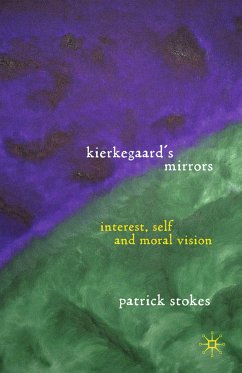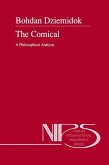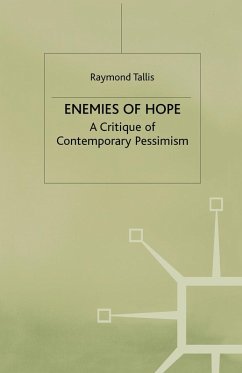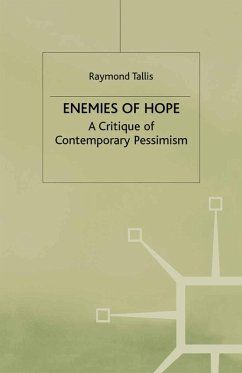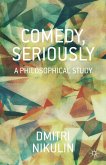Dieser Download kann aus rechtlichen Gründen nur mit Rechnungsadresse in A, B, BG, CY, CZ, D, DK, EW, E, FIN, F, GR, HR, H, IRL, I, LT, L, LR, M, NL, PL, P, R, S, SLO, SK ausgeliefert werden.
'Kierkegaard famously urged his readers to respect the autonomy of his pseudonyms. John Lippitt's clear, elegant and carefully argued reading of the ConcludingUnscientific Postscript illustrates the benefits of taking this advice seriously. Lippitt connects Johannes Climacus' repeated claim to be a humorist with Stanley Cavell's understanding of moral perfectionism, and thereby opens up an original and powerful interpretation of Kierkegaard's conception of religious belief, and of the more general ethical significance of humour. No future discussion of these matters can afford to ignore Lippitt's claims.' - Stephen Mulhall, New College, Oxford
'This is at once a profoundly lucid and compelling reading of the Concluding Unscientific Postscript and a significant meditation on the ethical themes of exemplarity and perfectionism central to post-Kantian moral philosophy. Written in Lippitt's characteristically accessible and engaging prose, this study demonstrates the centrality of humour to Kierkegaard's understanding of philosophy as an ethical practice - and, thereby, situates Kierkegaard's work in an ethical tradition of philosophy which extends from Socrates to Wittgenstein by way of Montaigne and Nietzsche. This book will be essential reading not only for Kierkegaard scholars but also for all concerned with the ethical character of philosophy.' - David Owen, University of Southampton
'Lippit makes intriguing new connections between the comic and other Kierkegaardian themes...I find this a fascinating book...bold in its engagements with disputed aspects of Kierkegaard exegesis, and ambitious (and successful) in its attempt to develop wider perspectives on the relevance of the comic to both the ethical and religious life in general.' - M. Jamie Ferreira, Theologische Literaturzeitung
'This [is] a well written, particularly lucid, eminently relevant and often illuminating book from an author who appears very well qualified to write it, being well-versed in both the philosophy of humour and in the study of Kierkegaard's writings.' - M.Ray, Heythrop Journal
'[I]t does not simply provoke us to argue with it in its own terms but also to engage more deeply with the questions and issues that it addresses...[T]hese questions and issues are of central importance and given...relaively little explicit or sustained attention...in the secondary literature...[T]he relevance of Lippitt's book will therefore be of long-term interest to Kierkegaard scholars...my guess is that it will be of similar long-term interest to philosophers interested in the question of humour...Lippitt's book...has a nice lightness of touch suitable to its topic - and one, I think, that could be enulated in philosophical discussions on very different subjects.' - George Pattison, Soren Kierkegaard Newsletter



